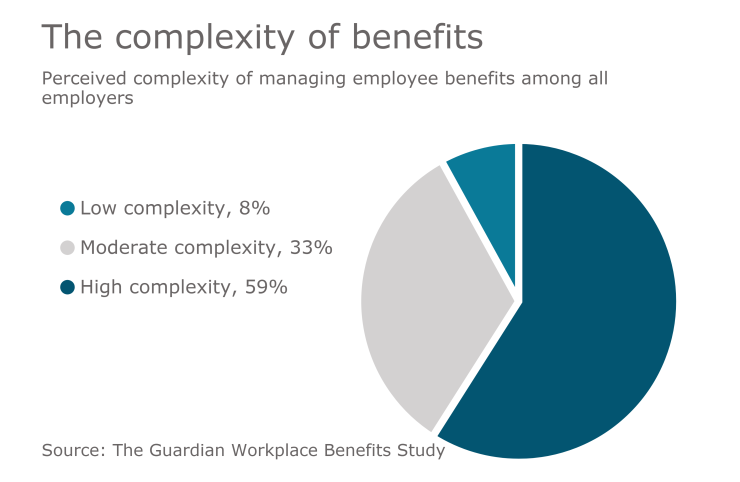Healthcare brokers are no longer the benefits salespeople of the past.
As lack of price transparency and low consumer health literacy contribute to climbing medical costs, benefits brokers have an opportunity to deliver more value than ever as strategic advisers.
HR is often short-staffed and asked to do more with less, and they are increasingly looking to benefits brokers to help optimize the ROI of their healthcare investments. Brokers provide crucial support in encouraging greater healthcare consumerism through education and communication strategies to ensure employers’ offerings and services are in line with employees’ needs.

The increased adoption of broker services confirms that they have the expertise and network in place to address mounting healthcare costs, but it also begs the question: what’s next for the broker business?
Education and enrollment services may have been differentiators in the past, but brokers need to expand their offerings to remain competitive in the market.
DirectPath surveyed more than 100 health insurance brokers to understand what services are currently most valuable to their employer clients and how those offerings may evolve in the year ahead.
What do employers want from brokers?
As employers pay more for employee health insurance each year, 66% of broker respondents said employer clients highly rely on them to control healthcare costs. In particular, employers are looking to convert employees into educated healthcare consumers. Studies show there is a correlation between low health literacy and higher expenses. As a result, brokers are seeing moderate-to-high demand for services that empower employees to make more cost-conscious healthcare choices. And these offerings are not necessarily new. They include:
· Benefits communications to make sure employees understand and enroll in their benefits
· Engagement services to increase employee participation in a preferred health plan
· Transparency services which compare cost and quality among providers, explain savings opportunities and educate employees about their care options under their selected plan.
Most strategic brokers provide these services, which employers can enlist to support smarter employee decision-making all year round. That said, employers seem to find these services especially valuable around open enrollment season. During this time, brokers said their employer clients looked to them for help across several areas, such as benefits communications (81%), enrollment support (80%) and engaging employees on benefits choices (73%).
These broker services that were once seen as cutting edge are now considered staple offerings for employers who want to control healthcare costs. Yet as the opportunity for brokers to deliver value expands, it will be interesting to see how their business plans follow suit.
Where will brokers focus in 2019?
More than half of brokers say it is very important to add new and innovative services to meet demand and stay competitive in today’s market. Of those respondents, brokers said the top drivers for innovation are rising healthcare costs (77%), demand for price transparency (60%) and competition (49%). With this in mind, the market can expect to see a few trends in broker offerings in 2019, including:
· Continuing services that cater to price transparency, rising medical costs and other top-of-mind market issues, and that that employer clients perceive as innovative
· Delivering superior customer service and relationships as a means of differentiation, which brokers report as a priority
· Highlighting less popular or new services that help to differentiate from the competition.
For example, 62% of brokers said their clients highly rely on them for compliance services, yet only 5% cite compliance as the topic customers and prospects ask about most. A full 91% of brokers see a lot of value in offering those services, indicating potential opportunity.
As brokers increasingly solidify their position as an extension of clients’ HR teams, their value proposition will continue shifting from ‘why do you need a benefits broker?’ to ‘why should you hire this benefits broker?’ Those that understand the needs of the current market, as well as how trends will affect the needs of the future market, will rise to the top of the industry.





